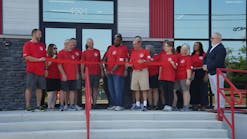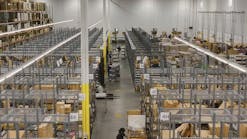Unfortunately, if you were rushing to my column because of the catchy title and want to feel good all over, you may not want to read any further. Because today, class, we are going to go on a different adventure. We are going to look at the much- publicized upcoming “recession.”
From all indications, including predictions from Alan Beaulieu of the Institute for Trends Research, we are facing an 18-month recession which could begin as early as the fourth quarter of 2008. (The Institute for Trends Research is one of the foremost researchers and forecasters of future economic trends and is a regular presenter and consultant to HARDI and many other associations. Their delivery of economic forecasts, no matter how troubling, is done with humor and aplomb, which is a rarity in their business.) Quoting from Beaulieu, “Recessions are like forest fires. They are inevitable; they clear out the deadwood and allow for new growth.” Apparently, the recession is coming no matter what, and there is nothing to stop it because it is basically a market correction. They predict the recession will extend into 2010 with recovery in 2011 and 2012. I guess we can only hope Alan's crystal ball is fogged over and the recovery will instead occur in 2010.
Have you noticed how everyone is talking about the economy, from the media to the politicians? In this election year, it has even replaced Iraq as the major concern of the electorate. Add to that the slowing economic growth, increasing home foreclosures, roller-coaster market swings, erratic consumer confidence and, if that was not enough, we could be paying $4 a gallon for petrol before too long.
What is a mother to do?
All is not lost, bucko! Here are a few suggestions I have gathered from the experts:
- First, most “boomers” have already been through several recessionary periods. I would suggest pulling out your financials and strategic plans (you did one, didn't you?) for the periods 1980:2 — 1982:1; and 1990:3 — 1991:1, and review the changes you made to your business and their effect during those times.
- If you are not already doing so, now is a great time to start doing scenario planning. The sooner, the better, pull your entire staff together and do “what if's” for every aspect of your business in an economic downturn. Then set down plans and strategies to match those possible scenarios so your decisions will be proactive rather than reactive.
- Talk to your customers often and know where the action is. Although counterintuitive, as the economy turns down, you need to speed up decisions and make them with certainty.
- Cash and receivables need to take priority over the P&L. High-risk, cash-poor customers need to be under the microscope and, in deference to some consultants, some need to be “fired.”
- “Lay off early” and “be slow to hire and quick to fire” are tough strategies for many businesses. But don't forget recessions are good for clearing out the deadwood and allowing for new growth.
- Keep building your business. There is always a tendency in a downturn to cut back or eliminate innovative thinking, training, advertising and brand development. Time and again, such moves have proven to have hampered business recovery due to the setback of an impetus to continue growing.
Let's face it, these are not fun times. We'd all like to go back to the last couple of years where most of our businesses were regularly surpassing monthly, quarterly and annual sales and profit goals. Unfortunately, that was then and this is now.
As stated before, I believe whole-salers are the closest thing to everyday entrepreneurs. Their conditioning makes them flexible and creative and ready to take on anything that comes their way. Above all, they are optimists. Their cup is always half-full, and that's why it is so much fun to represent them. As before, we'll get through this, and in the end, we'll all come out stronger than ever.
Don Frendberg,
Executive vice president / COO








